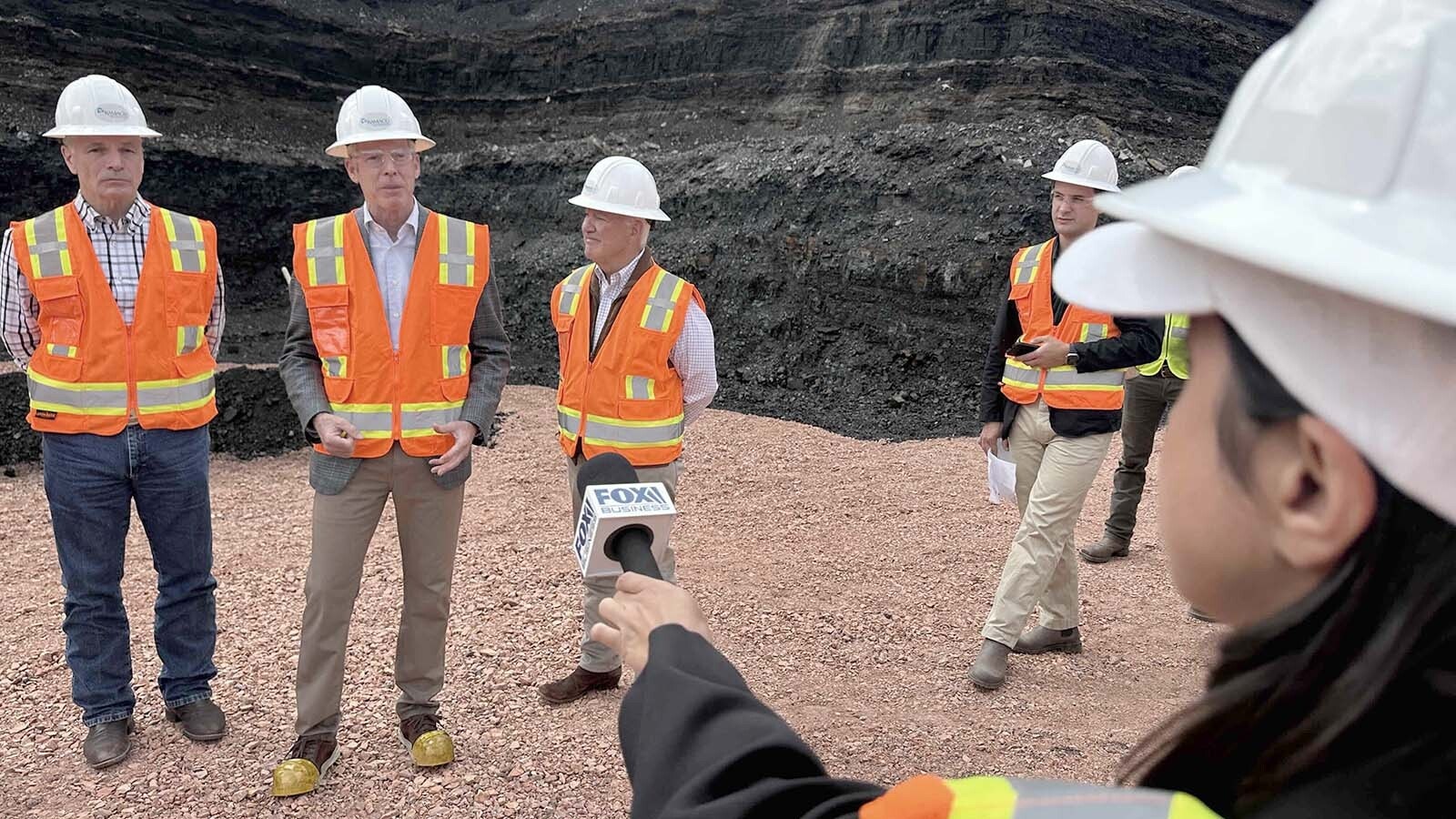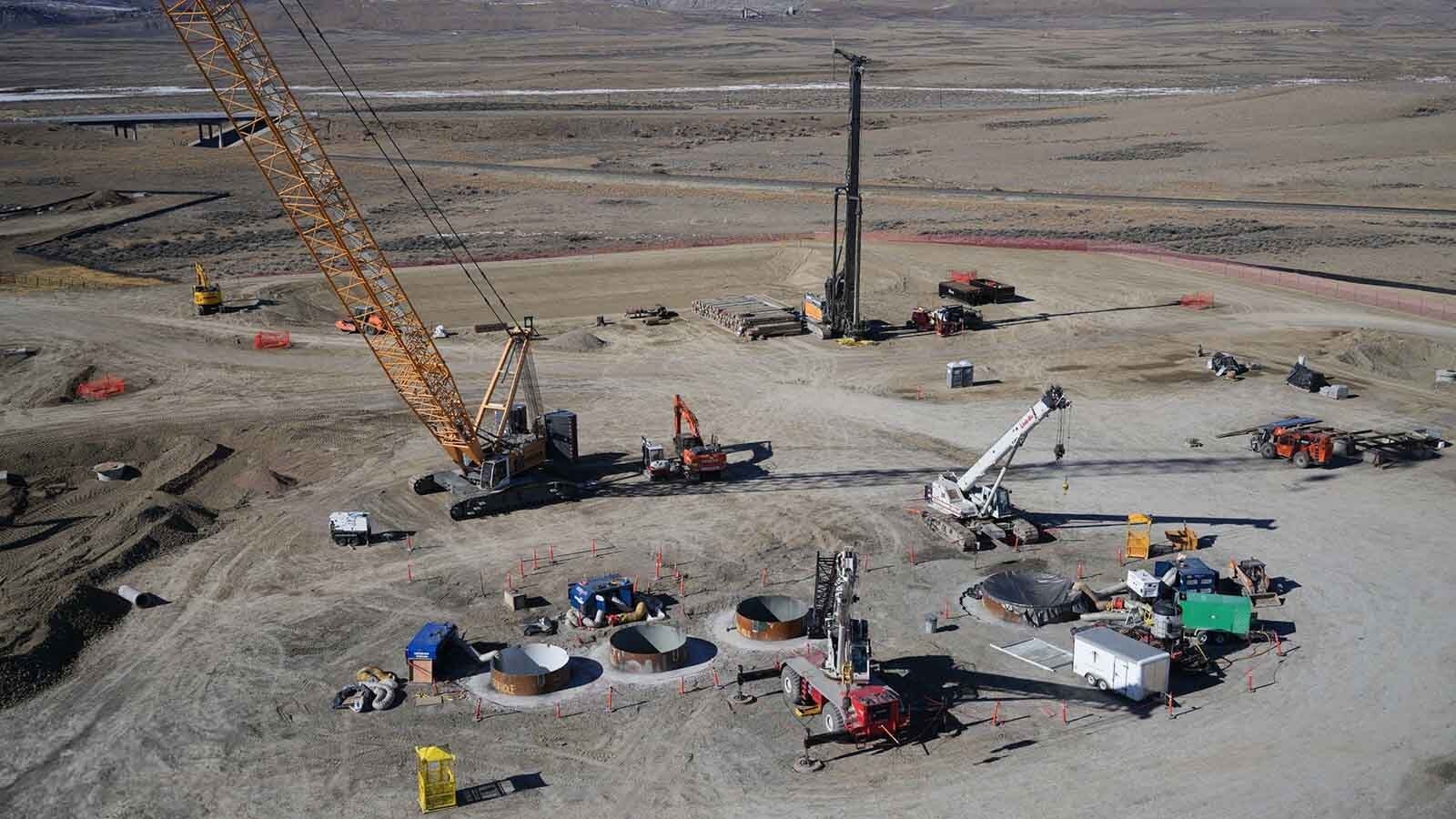By Renée Jean, Business and Tourism reporter
renee@cowboystatedaily.com
Employers have doubled their purchases of electronic monitoring software since the COVID-19 pandemic began, while employees doubled down on a phenomenon that’s become known as “quiet quitting.”
That might not be just a coincidence.
Always Watching
A Wyoming researcher has been studying the effects of companies electronically monitoring their employees – in their places of business and remotely – and has found that it can backfire in a big way, leading workers to break the rules more often than they otherwise might.
“We’re kind of seeing that quiet-quitting phenomenon now,” University of Wyoming’s business professor Dr. Chase Thiel told Cowboy State Daily. “You know, everybody went home, monitoring went up.
“And I don’t think it’s coincidental that you’re seeing that now – not just because employers have monitored their employees, but I think, you know, that’s one indication that (employees) are not trusted and treated well. And because of those types of practices, you’re seeing a lot of passive behavior.”
While some employees may feel that monitoring enhances fairness by catching bad apples or making performance more objective, Thiel said most of those in his study have reacted negatively, particularly if monitoring is used punitively.
“They don’t trust me, they don’t value me, they don’t think I’m going to do good work, so why should I do good work?” Thiel said. “I mean, essentially, we’ve taken away someone’s natural drive to be good by monitoring them and these other types of repressive practices, so they have no internal drive to be a good employee anymore.”

Monitoring and Monitored
Johnathan Williams has been on both sides of employee monitoring in various jobs. In his position as a manager for Love’s in Laramie, he is both monitored and involved in monitoring others.
“It’s a two-fold issue, because there is that sense of security,” Williams told Cowboy State Daily. “It’s like OK, the time clock didn’t record my clock-in, but here’s the proof that I was on the clock and working at that time.”
But he’s also seen some of the negative impacts of electronic monitoring and believes that Thiel’s research is spot-on. In his experience, employees who feel that management is heavy-handed with the tools will provoke a lot of passive-aggressive behaviors that can be hard to catch.
“If you understand the system, you can break the system,” Williams said.
‘Stuff Can Happen’
He’s also noticed that his mechanics tend to head straight for the bathroom anytime they’ve finished a job.
This is something Thiel’s research notes as a potential consequence when employees are uncomfortable with constantly being watched.
“Some of my employees have voiced that it’s bad for their morale and that they don’t like being recorded every second they’re on the clock,” Williams said. “It makes them feel an undue pressure.”
Those messages aren’t necessarily coming from employees who are under-performing or just average performers either. Even some of his best employees have expressed unease, Williams said.
“I understand the principle behind it, I do,” he said. “They’re trying to make sure that everything is covered, not only for making sure that people aren’t doing what they’re not supposed to do, but also for the security of their employees. I mean it’s a big truck stop, and stuff can happen in the shadows out there.”
Reached by Cowboy State Daily about their employee monitoring, Love’s sent an email statement: “Like other major retailers and employers, Love’s systems, networks, devices and data are monitored for standard regulatory compliance and information security purposes.”
About the Research
Thiel started his research with a small survey of 100 employees across the United States, some who were monitored and some who weren’t.
What he found was monitored employees reported taking more unapproved breaks, disregarding instructions, damaging workplace property, stealing equipment, purposely working at a slower pace and other types of passive-aggressive behavior designed to even the score with the employer.
The study shows only correlation, however, not causation, so Thiel did a second study with 200 U.S.-based employees, half of whom were told they would be electronically monitored.
The study participants were all given a series of tasks as well as an opportunity to cheat. Those who had been told they would be watched were more likely to take advantage of opportunities to cheat than those who didn’t know they were being watched.
For his next study, Thiel plans to dig in on the day-to-day experience of being monitored and explore questions like, what prompted managers to monitor and how did they use it? And, how did employees feel about it?
He hopes digging into the details about the day-to-day experiences will help him formulate evidence-based best practices.
“(Monitoring) is a multi-, probably billion-dollar industry at this point,” Thiel said. “So, it’s not going to go anywhere.
“But my hope is that through phenomena like quiet quitting, like we’re seeing now, and the great resignation, employers will recognize that they have to do things more humanely. Whereas monitoring is inherently an inhumane practice, I think they have to become very intentionally humane about how they administer it.”
Monitoring Not Always Bad
While Thiel’s research shows that employee monitoring can backfire, he ultimately believes not only that the trend is likely to stick, but that it could actually be a good thing in the end.
It all depends on how monitoring workers is presented and used.
“Make it very clear what will and won’t be monitored,” Thiel said. “Make it clear what rights employees have in the monitoring process. Make it clear the data will not be reviewed by certain groups of people that could be threatening to employees, and the data won’t be used to punish employees rather than promote good behavior.”
Don’t Assume the Worst
Motive also matters. Monitoring employees to catch them acting bad is the wrong motive, he said.
“If that’s your motivation, then you have the wrong set of assumptions about the people you’ve hired,” he said. “You should assume that the people you hire want to do good work and are good people. If you don’t, then you’re hiring incorrectly.
“And if that’s your motivation, people will experience monitoring in a punitive way, and they will feel threatened by it, so that should never be the reason.”
Another key, Thiel said, is to focus less on inputs and more on outputs. That way minor imperfections don’t become a detrimental focal point that leaves employees feeling powerless, even though they may already be meeting the bottom line.
“When we’re in school, we don’t send the message that everybody should be doing their work the same way at the same pace,” Thiel said. “But in a lot of workplaces, we send that message by monitoring people and kind of sending this message that you need to be working all the time, according to the standards we’ve set.
But that’s, No. 1, unrealistic and No. 2, it ignores the fact that some people just have, we all have different kinds of work approaches and learning styles.”
Focusing on outputs also lessens the need to monitor daily inputs and can help focus it on more helpful areas.
“Companies that measure inputs tend to micromanage,” he said. “But companies that measure outputs tend to put more trust in their employees and focus on, you know, figure out how you get it done, but here’s what I need from you.”





